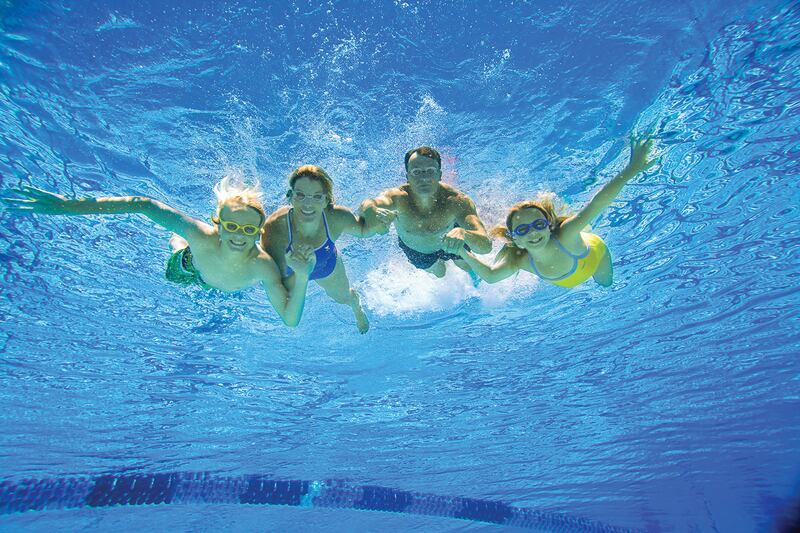With summer here, the American Red Cross is putting out guidelines on safe food prep and outdoor activities, including swimming and boating.
Swimming
Drowning can happen quickly and silently. Unless rescued, it could take as little as 20 to 60 seconds for a drowning person to submerge, according to the Red Cross.
Follow these tips for safe swimming:
- Prevent unsupervised access to water, provide constant and active adult supervision, and know how to swim.
- Never swim alone – adults and teens, as well as children. Never leave a young child unattended near water, and do not trust a child’s life to another child. Swim in an area with lifeguards.
- Designate a “water watcher” whose sole responsibility is to keep a close eye and constant attention on everyone in and around the water until the next water watcher takes over.
- Don’t just pack it, wear your life jacket – always on a boat and if you are in a situation beyond your skill level.
- In the event of an emergency, reach or throw an object to the person in trouble and tell them to grab on to it. Don’t go in. You could become a victim yourself.
:quality(70)/cloudfront-us-east-1.images.arcpublishing.com/shawmedia/RXZKRGCV5CZ6DOZQVZ3L6QTB2I.jpg)
Grilling and food prep
Grilling sparks more than 10,000 home fires on average each year, according to the Red Cross.
“Always supervise a barbecue grill when in use. Never grill indoors or in any enclosed area. Make sure everyone, including pets, stays away from the grill,” the Red Cross said.
Other tips include:
- Keep the grill out in the open, away from the house, deck, tree branches or anything that could catch fire.
- Use the long-handled tools especially made for cooking on the grill to help keep the chef safe.
- Wash your hands, utensils and workstation before preparing the food.
- Don’t leave food out in the hot sun. Keep perishable foods in a cooler with plenty of ice or freezer gel packs.
- Separate uncooked meats, poultry and seafood from ready-to-eat foods such as salads, fruits, vegetables, cheeses and desserts. Use separate plates and utensils to prevent cross-contamination.
:quality(70)/cloudfront-us-east-1.images.arcpublishing.com/shawmedia/4UEAQJS3QNFXLKVA7GJQAEJUEU.jpg)
Camping
Being prepared for emergencies is critical when you’re headed to an area with limited access to phone services and help. If you are heading out to camp or hike, wear layers of lightweight clothing, sunscreen and a hat.
- Pack a first-aid kit with insect repellant, sunscreen and personal medications. A variety of first-aid kits and emergency supplies are available at redcrossstore.org.
- Know the level of ability of your group and the environment around you. Plan to use hiking trails that are within your skill level.
- Share your plans, including where you are going and when you should be back, with a family member, neighbor or friend.
- Bring nutritious food items and plenty of water, even if you don’t plan to stay overnight.
:quality(70)/cloudfront-us-east-1.images.arcpublishing.com/shawmedia/D6HD4Z57FHVS4YSWGOOV2YV6ZI.jpg)
The Red Cross has a free First Aid app that helps you know what to do if emergency help is delayed. The free Emergency app provides weather alerts, information on open Red Cross shelter locations and safety steps for different emergencies.
Find the apps in smartphone app stores by searching for the American Red Cross or going to redcross.org/apps.

:quality(70)/author-service-images-prod-us-east-1.publishing.aws.arc.pub/shawmedia/8832388b-fc0a-47f3-aa56-fba06c9d2015.jpg)